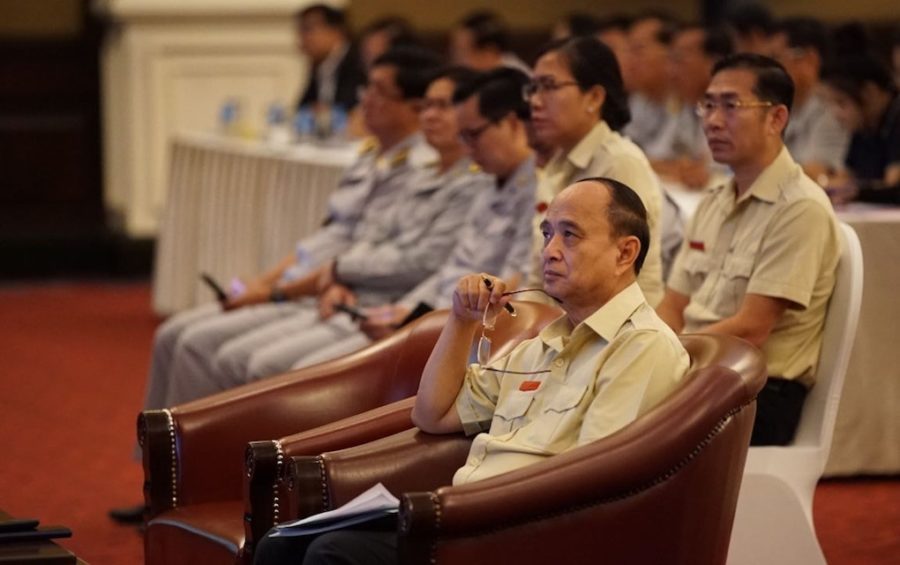A government advisory body has urged the Anti-Corruption Unit (ACU) to more effectively combat corruption in the judicial system, with some calling for a “sharper nail” to peel back layers of collusion in the courts.
Members of the Supreme Consultative Council — a body comprised of minor political party representatives, which formed after the main opposition CNRP was barred from last year’s elections — on Tuesday met with ACU officials in Phnom Penh to discuss and comment on a draft report on Cambodia’s implementation of the U.N. Convention against Corruption, which is evaluated every five years before being submitted to the U.N. Cambodia joined the convention in 2007.
Council member Kong Monika, who is president of the Khmer Will Party, told VOD that during the discussion he said government crackdowns on corruption seemed to tackle small cases, and there was no action on big cases involving rich and powerful people.
“We still believe that there are more cases of this kind in Cambodia. Therefore, we want the Anti-Corruption Unit to have a sharper nail to peel the thickened orange skin,” Monika said. “That is why we urge the ACU to enhance its effectiveness.”
Cambodia Youth Party president Pich Sros, who is also a council member, said he expressed similar comments in the meeting, telling ACU head Om Yentieng that court corruption is ongoing and needed to be examined.
Lawyers played the role of brokers to give bribes to court clerks, prosecutors and judges before hearings, Sros claimed.
“When injustice happens, it will be hidden by the cover of corruption,” Sros said. “So we have to really pay attention because currently people are hungry for justice.”
According to Sros, Yentieng accepted these suggestions but the anti-corruption czar reminded council members not to think of the ACU as a biased institution that randomly took action against alleged offenders.
Justice Ministry spokesman Chin Malin welcomed the council’s suggestions but urged for cooperation in providing evidence of corruption to make it easy for authorities to act.
“We welcome the mechanism to prevent corruption, not only in the judiciary system but in all other state institutions,” Malin said.
In February, the World Justice Project ranked Cambodia 125 out of 126 countries in its Rule of Law Index — above only Venezuela. The report said the nation’s court system was the worst in the world for civil justice, or whether the handling of civil cases is “accessible and affordable as well as free of discrimination, corruption, and improper influence by public officials.”
(Translated and edited from the original article on VOD Khmer)












